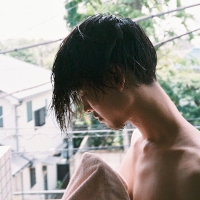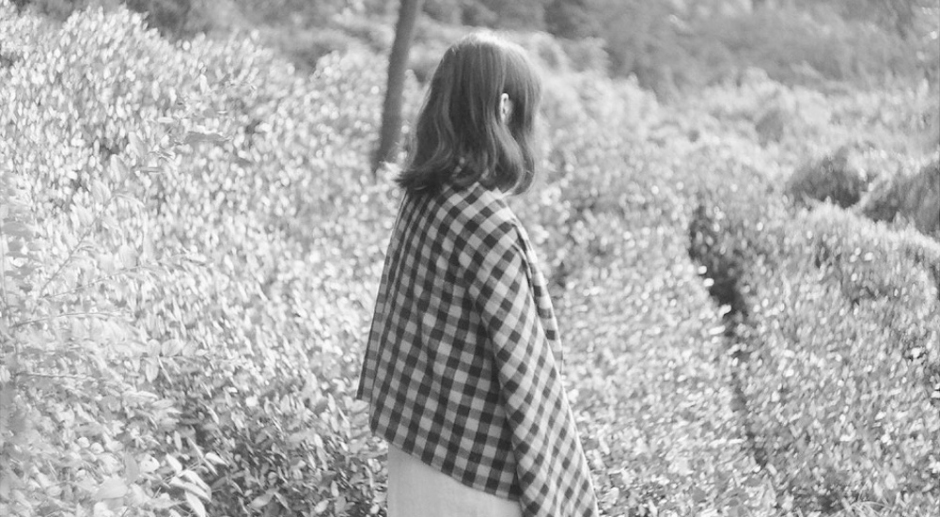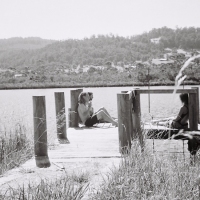 Tackling mental health issues online and IRLAn in depth look at how social media can help make it okay for people to talk about mental health, but also the importance of IRL spaces too.
Tackling mental health issues online and IRLAn in depth look at how social media can help make it okay for people to talk about mental health, but also the importance of IRL spaces too.

Music, Memories & Deafness: My Family's Story
Part one of a two-parter about coming to terms with hearing loss.
Words by Jess Phillips. Header image Li Hui.
When I was 19 I was in, what I thought was real love for the first time. I would rarely visit him by day, preferring to and feeling more myself after dark.
Paul was studying architecture, which meant I could rely on him to be awake, tinkering and building tiny Task board civilisations until dawn. His room sat atop a winding flight of steps in a Victorian style house in Mount Lawley, Perth. The steps had shelves to either side, and were furnished with books, dust and sun bleached copies of National Geographic.
We used to lie on his carpeted floor, stare up at the ceiling and listen to Joy Division. We talked about feelings, music and what summer in Perth were for if not for nights like these.
Later he found a real girlfriend. Taking me aside he said, “that we were too similar to ever be… more.”
Nine years later, when I listen to the same sounds from a time in my life when my emotions were oversized, there is a softening that overcomes me. Paul meant something big to me, and though I didn’t have the room to feel heartbreak then, I do now, and Joy Division helps me to go there.
My music catalogue is a like a diary; a confessional map of love, lack and existential pain. And I take it for granted that whenever I want, wherever I want, I can tune into something that moves me; songs matter, and I’d be emptier without them, but what about people who are hearing impaired or deaf… people like my mum?
Mum grew up in Wynyard and Somerset, two small town-ish places between Burnie and Table Cape in North West Tasmania. When she was in her late teens she used to tape Top 40 songs from the radio with a cassette recorder, hovering like a fly over the pause button, in an effort to beat the announcer’s voiceover, lest it ruin her mixtape. She loved capturing sound and storing it away for her future self to enjoy.
She devoured Countdown, but only when her dad wasn’t around and like most teenagers, her pocket money was spent amassing her fair share of vinyl. Some of her favourite musos included Skyhooks, Alice Cooper and Cat Stevens. She described Tasmania as a bit of a backwater in those days; bands generally only played shows on the mainland. That said, she did head out to a disco or 10 most weekends and dance herself to exhaustion. It’s hard to imagine my mum eating pizza at 4am, staring up at the ceiling, fingers interlaced with her man of the moment, and sleeping till the early afternoon. But I want to.
Mum’s in her 50s now and music no longer fills in the gaps, those unavoidable spaces of day-to-day inbetween-ness, nor does it serve as a gateway to memories of those nights when she didn’t have to be home by 9 to tuck me in.
She was 30 when informed by an audiologist that her hearing was that of a 60-something - “Come back in 10 years love, you’re too young for hearing aids.”
10 years later she did that, and reluctantly took home a relatively discrete pair. At 40, her brain had already started to unlearn many of the sounds she had come of age to.
She went along to a few concerts with her sister in the years between 30 and 40. Having retained memory of the melodies, a Crowded House gig, she recalls, was palatable, enjoyable even, because she already knew the lyrics. The memory was there, so despite not being able to hear as well as her fellow punters, her brain could fill in the gaps and make some sense of it all.
Now when she’s driving about town, running errands and chauffeuring her grandson to swimming lessons, the digital radio inside her little yellow Toyota tries its best to include her as a listener, subtitling the artist’s name and song title for her reading pleasure.
It was three years ago this year that she had her shoulder length hair shaved and her skull bones incised as she underwent surgery for a Cochlear implant on her left side. I had moved to Melbourne two years earlier, so flew over to make her tea and support my dad.
I hardly recognised her after the operation. She was groggy, puffy eyed, a dazed flavour of frightened. And the stitches. Her skull was covered in yellowing antiseptic ooze that triggered for me a heaving nausea. When she’d ask, I’d hold a mirror up to her head with my eyes closed.
I remember pacing around a Black Swan filled lake across the road from the hospital while she slept, venting to a childhood friend on the phone. The urge to move the anxiety around, through and out of my body was compelling.
I felt sad and guilty then; I was, for lack of a better term, FINE… and she wasn’t and there wasn’t a thing I could do to change how fast or slow her hearing was disappearing. We could barely talk on the phone anymore, and it felt shit and unfair.
I have spent a considerable chunk of my adult life feeling sorry for my mum.
I’ve felt guilt, sadness, anger, all the heavy things, because I saw that a very human something that she had every right to claim and enjoy, was becoming increasingly more difficult. Her dwindling capacity to enjoy music in the same entitled way I am accustomed to, was, and is most upsetting to watch. The nature of sense loss is confusing, like most things until you’ve experienced it, it’s difficult, if not impossible to know what it’s like, and it’s scary being the kid… your parents are your parents, and watching them age can be incredibly destabilising.
While researching for this piece, I connected with my grandad, mum’s dad. Grandad is almost deaf. When he doesn’t have his aids in, he can’t hear much, if anything. Grandad also began to observe his hearing fading in his youth, noticing but wishing he hadn’t, that things weren’t quite right in his 20s. He accepted his first hearing aid too many years later when he was in his 40s.
Whilst out to lunch at his local, he told me of the assumptions people make of his character… daily.
“You can only ask people to repeat so many times what they’ve said, before they get angry, annoyed and dismiss you altogether as stupid.”
After lunch we drove along the coast, back to his handmade place in Upper Burnie, and I asked him if he had experienced an increased acuity in his other senses as his hearing declined. And whilst I allayed his needy Terrier with generous pats, he revealed to me several titbits.
The first was body language. He said that his capacity to interpret the cues conveyed through a person’s physical gestures had soared exponentially as his hearing slowly petered out.
He spoke also about his sense of intuition, which he claimed is now a superpower, an art he is increasingly refining. He referred to it as a different kind of listening. “Sometimes I get it wrong and it leads me astray, but for the most part, Jess, it’s pretty reliable when I’m willing to listen.”
This made sense. Of course one’s intuition would be heightened. The body has its ways of compensating, of making up the deficit and in my grandad’s case, losing his hearing had amplified his connection to a sense that many people might never come to be so well acquainted with.
I glimpsed on his bookcase several music albums, and wondered, but didn’t have the guts to ask about his relationship to music, and whether those discs ever received a good spinng. I was sure they did.
 Tackling mental health issues online and IRLAn in depth look at how social media can help make it okay for people to talk about mental health, but also the importance of IRL spaces too.
Tackling mental health issues online and IRLAn in depth look at how social media can help make it okay for people to talk about mental health, but also the importance of IRL spaces too.
 Rediscovering Human Decency When We Need It MostInstead of pigeonholing people, it's time to start talking to them.
Rediscovering Human Decency When We Need It MostInstead of pigeonholing people, it's time to start talking to them.